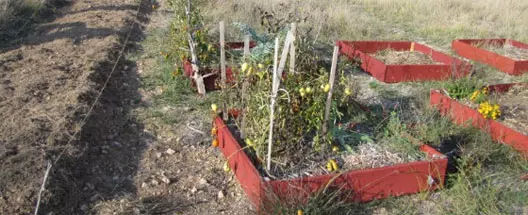
Environment and Biodiversity
Place
Volx, France
Sponsor
Alain Gervais
Grant(s)
4 000 € to the Selection Committee at 2012/06/05
Project leader
"I consider the aims of the project feasible in light of the skills of each of the nonprofit's members, whose involvement in organic agriculture I'm familiar with and whose educational approach I know to be effective for promoting respect for the environment."
Alain Gervais
At the start, a desire, to create a bond: bond with the soil, bond of transmission to others. But also a quest for pleasure: the pleasure of resuming contact with one's own environment, the pleasure of culinary quality and diversity, the pleasure of investing in the co-management of a shared space, where each person has a role by pulling a rake or a hand aerator. And finally an ambition: that of preserving the land, of preserving its rural spirit and improving its biodiversity. Desire, pleasure and ambition therefore lie at the root of this project for an outreach and shared garden, led by the local nonprofit Le Jardin Des Collines.
"Continuous" and "demand" supply
Yet the land of the garden still requires considerable work to make it cultivable. Lacking any possibility of gravity watering, it can only be watered by mechanical means. Today, it has a heat pump, which requires considerable handling and it takes several hours to fill the two 1 000 liter tanks placed on the land. These conditions are prohibitive for the multi-weekly sprinkling necessary in the summer season. Besides, the use of a heat pump goes against the values developed in the garden, like respect for the environment, the limited use of products derived from oil. It is therefore especially timely to provide the garden with sprinkling systems which allow "continuous" supply of water for sprinkling the common plantations and "demand" supply systems for sprinkling the individual plots. For "continuous" supply, and insofar as the land does not have main water supply, the installation of a solar water pump is clearly the right solution to provide a flow of a few liters per minute in order to fill the storage tanks and thereby allow gravity sprinkling. As to "demand" supply, a hand pump is planned near the space reserved for the plots.
The Veolia Foundation is participating in installing the pumps.

